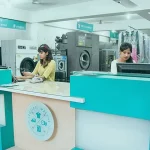Septic systems are essential for wastewater treatment in areas without access to municipal sewage services. These systems rely on septic tanks to separate, treat, and dispose of household wastewater. However, without proper maintenance, septic systems can experience overflows, which pose health risks, environmental harm, and costly repairs. Septic tank pumping plays a crucial role in preventing system overflows by removing accumulated solids. In this article, we will explore the importance of septic tank pumping in averting overflows and the consequences of neglecting this essential maintenance task.
Understanding Septic System Overflows
A septic system overflow occurs when the effluent (treated wastewater) in the septic tank cannot flow into the drainfield as intended. Instead, the effluent may back up into the home, surface on the property’s surface, or seep into unintended areas. Overflows can result from various issues, including:
- Solids Accumulation: Over time, solid waste and sludge accumulate in the septic tank. If not pumped regularly, these solids can obstruct the flow of effluent.
- Drainfield Clogging: Solids that enter the drainfield can clog the soil, rendering it ineffective at absorbing and treating effluent.
- Blockages in Pipes: Blockages or damage to pipes can prevent effluent from reaching the drainfield, causing backups.
- Hydraulic Overload: Excessive water usage in a short period can overwhelm the septic system, leading to overflows.
- Tree Root Intrusion: Tree roots can infiltrate septic system components, causing damage and blockages.
The Importance of Septic Tank Pumping
Septic tank pumping is the process of removing accumulated solids and sludge from the septic tank. This routine maintenance task is vital for several reasons, including:
- Preventing Clogs: Regular pumping ensures that solids do not accumulate to the point where they obstruct the flow of effluent through pipes and into the drainfield.
- Maintaining Efficiency: A well-maintained septic tank can efficiently separate solids from effluent, allowing for proper treatment before dispersal into the drainfield.
- Extending System Lifespan: Routine pumping helps prolong the lifespan of a septic system by reducing the risk of damage and costly repairs.
- Avoiding Health Hazards: Septic overflows can introduce harmful pathogens and contaminants into the environment, posing health risks to residents and neighbors.
- Environmental Protection: Properly maintained septic systems protect groundwater and surface water from contamination, preserving the environment.
Consequences of Neglecting Septic Tank Pumping
Neglecting septic tank pumping can lead to a range of detrimental consequences, both for homeowners and the environment. Here are some of the potential outcomes of failing to pump the septic tank:
- System Overflows: The most immediate consequence is the risk of septic system overflows, which can result in sewage backups in the home, foul odors, and unsanitary conditions.
- Property Damage: Overflows can cause damage to the property, including water damage to floors, walls, and possessions. Cleanup and repairs can be costly.
- Health Risks: Exposure to untreated sewage poses significant health risks, including the potential for waterborne diseases and infections.
- Environmental Contamination: Septic overflows can introduce harmful pathogens and contaminants into groundwater and surface water, harming ecosystems and drinking water sources.
- Legal Consequences: In some cases, septic system failures and overflows can lead to legal issues, including fines and penalties for environmental violations.
- Costly Repairs: Neglected septic systems may require extensive repairs or even replacement, which can be financially burdensome.
- Reduced Property Value: A malfunctioning or poorly maintained septic system can lower the resale value of a property and deter potential buyers.
The Role of Routine Maintenance
Routine maintenance, including septic tank pumping, is the key to preventing septic system overflows and their associated problems. Here are some guidelines for homeowners to ensure proper septic system care:
- Pumping Schedule: Follow a recommended pumping schedule based on factors such as tank size and household size. Most systems require pumping every 3 to 5 years.
- Inspection: Regularly inspect your septic system for signs of trouble, such as slow drainage, odors, or wet spots on the property.
- Water Conservation: Practice water conservation to reduce the volume of wastewater entering the septic system. Fix leaks promptly and use water-saving fixtures.
- Responsible Waste Disposal: Avoid disposing of non-biodegradable or harmful materials down drains or toilets. These can contribute to clogs and system issues.
- Professional Service: Engage qualified septic service providers for routine inspections, maintenance, and pump-outs. They can assess the condition of the system and provide expert guidance.
- Drainfield Protection: Protect the drainfield by avoiding heavy machinery or construction activities over it. Also, keep trees and shrubs away from septic system components to prevent root intrusion.
- Septic-Safe Products: Use septic-safe cleaning products and limit the use of antibacterial soaps, which can disrupt the microbial balance in the septic tank.
Conclusion
Septic tank pumping is a fundamental aspect of septic system maintenance that plays a critical role in preventing overflows and their associated consequences. Neglecting this essential task can result in health risks, property damage, environmental harm, and costly repairs. Homeowners should prioritize routine maintenance, adhere to recommended pumping schedules, and engage qualified professionals to ensure the proper functioning and longevity of their septic systems. By taking proactive measures, homeowners can protect their investments and contribute to a cleaner, healthier environment.








